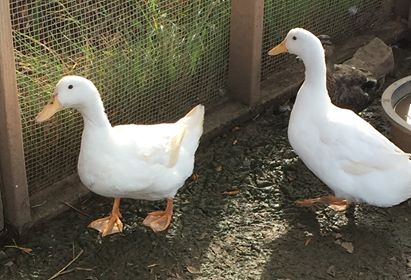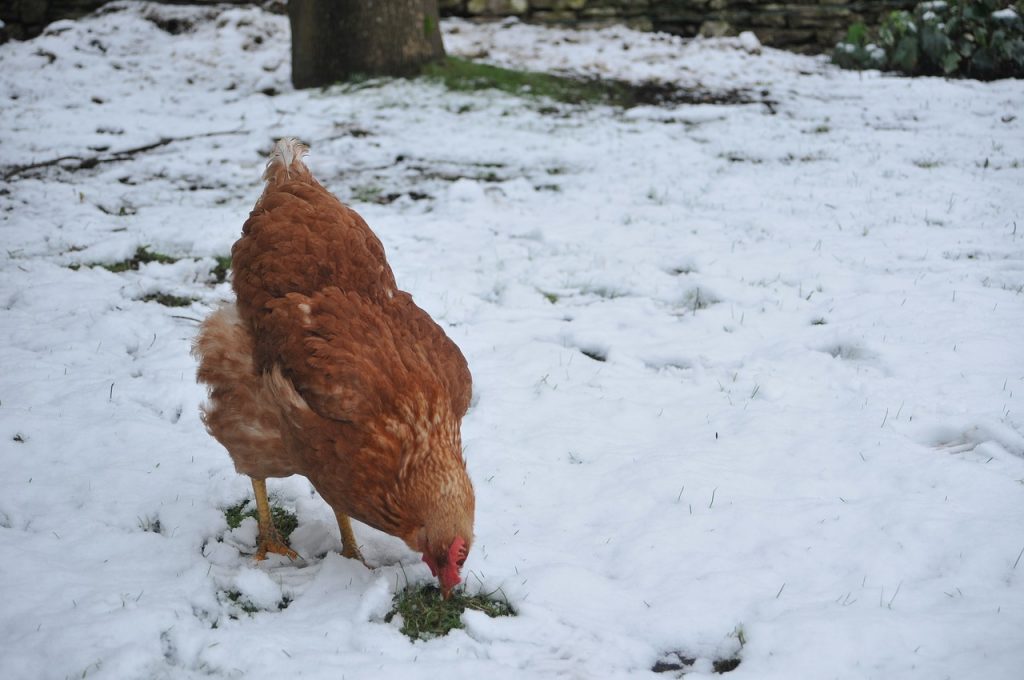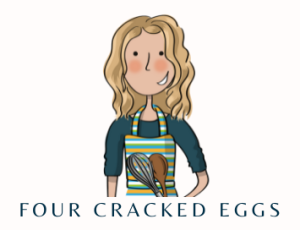Winterizing Your Backyard Flock
As I pull out my phone and check the forecast for the week, I see a snowflake. Yup, a snowflake. It’s that time of year again when the winter coats, gloves, snow boots and hats come out of hiding. Here in the Midwest, we know how to “winter.” We’ve grown accustomed to FEET of snow pelting us on the ground and accumulating so high that your first born will get lost if we fling them into the mound on the side of the driveway. For some, it makes them giddy with joy. They can dust off their snowmobiles, skis and other winter paraphernalia. For the others, it’s a time to hunker down, make a bunch of crock pot meals, stews, soups, bread and other glorious baked goods, in a feeble attempt to hibernate for the better part of the season. On our little homestead, we are down to 6 laying hens and 4 ducks. We lost one of our little hennies, Soccer Coach, this past summer. We believe she was egg bound. Our family decided to thin the flock a bit, so we gave away three other hens to our wonderful farmer neighbors, where they roam freely. Our “loving” rooster, General Tso, is now in chicken heaven as well. We believe he died from either a heart condition or gout. He was a huge bird that served our flock well for many years. Then there were six.
It is very important to take the necessary steps to ensure your flock can withstand some of the coldest weather our neck of the woods has to offer. Below is a list of things that we do for our flock to ensure a successful winter.
Coop Checks:
Our coops are insulated as well as our home. My main squeeze built the chicken coop and duck palace so indestructible that even the zombie apocalypse won’t shudder them. That said, make sure that any cracks or holes are filled in before the cold snap. Also, it is important to layer extra pine shavings or other bedding in the coop (and nesting boxes) that will provide extra warmth. It is very important to change out the bedding often during the winter. Our chickens are “literal chickens.” They hate coming out in the snow unless I toss some goodies in the garden to them. They will stay inside where it’s warm and create a “mess.” Make sure the coop stays clean and also has proper ventilation. This will ensure happy, healthy hens all winter long. Same goes for the duckies. They LOVE being outside. Often times, they avoid going inside to stay warm and will huddle in the corner keeping each other warm. We do a regular sweep inside their palace and run to keep “the mess” to a minimum.
Fresh Water, No Ice Please:
Ugh, the dreaded waterer in the winter. It’s about as annoying as a gnat in your nose, a stubbed toe, or spilled coffee. When the blustery winds smack your face as you carry two heavy loads of fresh water down to the coop, I remind myself that, “I love my chickens. I love my ducks” We do not have water running down to the coop, and our side spigot is turned off for the winter. We fill up two, 5-gallon buckets in our garage, trudge through 57 feet of snow and clean out the chicken watering can (and duck water trough). So that’s TWO trips back and forth to get the fowl what they need. I mean, look at their big dopey, adorable faces. We have electricity running to the coop and duck palace. We have to keep cords hidden, buried and not in plain sight. Otherwise, they will peck at the cords! We have a heated base for our galvanized metal watering fountain. This keeps the water just above freezing so they have a delicious drink readily available to them. We keep a 3-gallon rubber feed pan in the duck palace for their water. To keep that from freezing, we use a 50-watt deicer.

Who Turned Out the Lights?
This is a hot topic for some backyard bird keepers. In order for a chicken to maintain laying eggs year round, they need at least 12 hours (14 to 16 for optimal laying) of sunlight per day. Birds are just like us, they need their sleep. Though I love eggs year round, my husband and I decided that we will adhere to the chicken’s natural biorhythms, in an attempt to keep them happy, healthy and less stressed. We eat our eggs seasonally. Some reports claim that pushing hens to lay eggs by way of artificial lighting, can lead to ovarian cancer, lash eggs or vent prolapse. This method may be perfectly suitable for your family (no judgement, personal preference), but we have chosen to give the ladies a break in the winter. After all, our ducks lay pretty much all year. With gaps in production, we turn to the quackers to pick up the slack. If you do choose supplemental lighting in your coop, be sure to do your research on the best lighting sources, what to avoid, and how to properly set up your lighting source. You need to avoid fire hazards and lightbulbs that can emit toxic fumes to you chickens.
Feed ME!
Proper nutrition plays an important part in your flock’s health. In the colder, winter months, they need extra carbohydrates to stay warm. We continue feeding our flock layer pellets, but also add in a rotation of scratch grains, corn and oatmeal. This shouldn’t be their main staple, but rather a nighttime treat for them in preparation for a winter’s night sleep. Chickens are natural foragers. With the ground snow covered and frozen, they cannot find the grit that they need to help break down food. We supplement with grit as well in the winter. Our ducks continue eating their all flock layer pellets, and we supplement similarly with corn and scratch at night for a boost in carbohydrates.
You’re Free to Go…But Please Come Back:
In the winter, the snow will be the biggest obstacle near your coop and their play yard. We have to consistently check the fenced in area so the chickens cannot escape. One, because the neighbor dog is…a dog. Two, because they can easily find a way to escape. During the winter months, if one gets out, it will be much harder to get back in. They have a higher likelihood of meeting their demise if left outside of the coop overnight. We like to do head checks every night before we tuck the ladies in. Knock on wood, we’ve never lost a chicken…OMG I’ve jinxed us. At any rate, keep the coop, run and fenced in enclosure free from snow and debris and count your chickens at night. Or ducks…

As you can see, most of this is pretty self-explanatory. There are tons of articles that you can find on how to best care for your flock based on your climate. It can be more work in the winter, but the abundant spring eggs will make it all worthwhile!
*Affiliate links included in this article.
2 Comments
Leave a Comment
You must be logged in to post a comment.

This was very helpful for me and my little flock I have nine Yung chickens about 6 months old and I love them so does my wife Karen Thanks
So sorry this message was lost! I just read this. Glad this wintertizing post was helpful:) Stay safe! Courtney